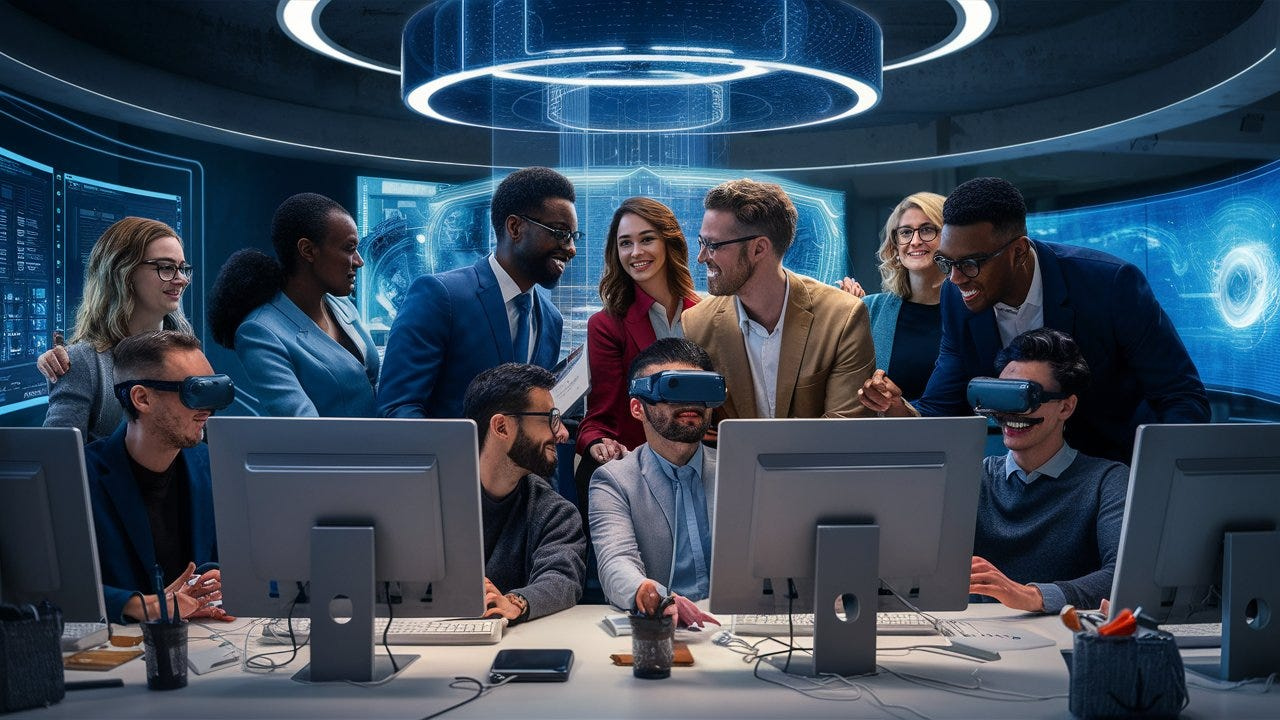News JotechGeeks: Top AI and Robotics Innovations for 2024

Artificial Intelligence (AI) and robotics have been at the forefront of technological advancement, continually reshaping industries and daily life. In 2024, these fields have witnessed remarkable innovations, pushing the boundaries of what’s possible. This article delves into the year’s most significant AI and robotics developments, highlighting their transformative impact across various sectors.
Advancements in Artificial Intelligence
Generative AI Models
Generative AI has made substantial strides, enabling machines to create content ranging from text to images and music. These models have become more sophisticated, producing human-like outputs that are increasingly indistinguishable from those made by humans. Such advancements have broad applications, including content creation, design, and entertainment.
AI in Healthcare
In healthcare, AI has enhanced diagnostic accuracy and personalized treatment plans. Machine learning algorithms now analyze vast datasets to identify patterns and predict patient outcomes, leading to more effective interventions. AI-powered tools assist in early disease detection, improving patient prognosis and reducing healthcare costs.
AI in Autonomous Vehicles
The automotive industry has seen AI-driven advancements in autonomous driving technologies. Enhanced computer vision and decision-making algorithms have improved vehicle safety and efficiency. Companies are conducting extensive testing to bring fully autonomous vehicles closer to reality, promising to revolutionize transportation.
Breakthroughs in Robotics Technology
Humanoid Robots
Humanoid robots have evolved significantly, with enhanced mobility and agility. Companies like Tesla have introduced prototypes such as Optimus, which are designed to perform tasks traditionally handled by humans. These robots aim to assist in manufacturing and other labor-intensive industries, addressing labor shortages and increasing productivity.
Collaborative Robots (Cobots)
Cobots are designed to work alongside humans, enhancing productivity and safety in various industries. They are equipped with advanced sensors and AI algorithms to adapt to human actions, making them valuable assets in manufacturing, healthcare, and logistics.
Service Robots
Service robots have become more prevalent in sectors like hospitality and retail. They perform cleaning, delivery, and customer assistance, improving operational efficiency and customer experience. Advancements in AI have made these robots more interactive and responsive to human needs.
Read More
Integration of AI and Robotics
AI-Powered Robotics
The fusion of AI and robotics has led to machines capable of learning and adapting to new tasks. AI algorithms enable robots to process complex data, make decisions, and perform tasks with minimal human intervention. This integration is evident in autonomous drones, robotic surgeons, and AI-driven manufacturing robots.
Robotics in Healthcare
In healthcare, robots assist in surgeries, rehabilitation, and patient care. AI enhances their precision and decision-making capabilities, leading to better patient outcomes. For instance, robotic surgical systems perform minimally invasive procedures with high accuracy, reducing recovery times.
Industrial Automation
AI and robotics have transformed industrial automation, leading to intelligent factories with interconnected systems. Robots equipped with AI can monitor production lines, predict maintenance needs, and optimize workflows, resulting in increased efficiency and reduced downtime.
Ethical and Practical Implications
Job Displacement Concerns
The rise of AI and robotics has sparked debates about potential job displacement. While these technologies can perform repetitive tasks, there is concern about their impact on employment. However, they also create new tech development, maintenance, and oversight job opportunities.
Ethical Considerations
The deployment of AI and robotics raises ethical questions regarding privacy, decision-making, and accountability. Ensuring these technologies operate within ethical boundaries is crucial to prevent misuse and protect individual rights.
Regulatory Challenges
Governments and regulatory bodies face challenges in keeping pace with rapid technological advancements. Establishing frameworks that promote innovation while ensuring safety and ethical compliance is essential.
Future Prospects and Innovations
AI in Everyday Life
AI is expected to become more integrated into daily life, with applications in smart homes, personal assistants, and entertainment. Advances in natural language processing and machine learning will make AI more intuitive and user-friendly.
Robotics in New Sectors
Robotics will expand into new sectors, such as agriculture, where robots can plant and harvest. Robots will assist in building and maintenance, improving safety and efficiency.
Human-Robot Collaboration
Future innovations will focus on enhancing human-robot collaboration, making interactions more seamless and productive. Developing robots that understand and respond to human emotions and commands will be a significant area of research.
Read More
Conclusion
The advancements in AI and robotics in 2024 have set the stage for a future where these technologies are integral to various aspects of life and industry. While challenges remain, the potential benefits in efficiency, productivity, and quality of life are immense. As we move forward, it is crucial to navigate the ethical and practical implications thoughtfully to harness the full potential of AI and robotics.






